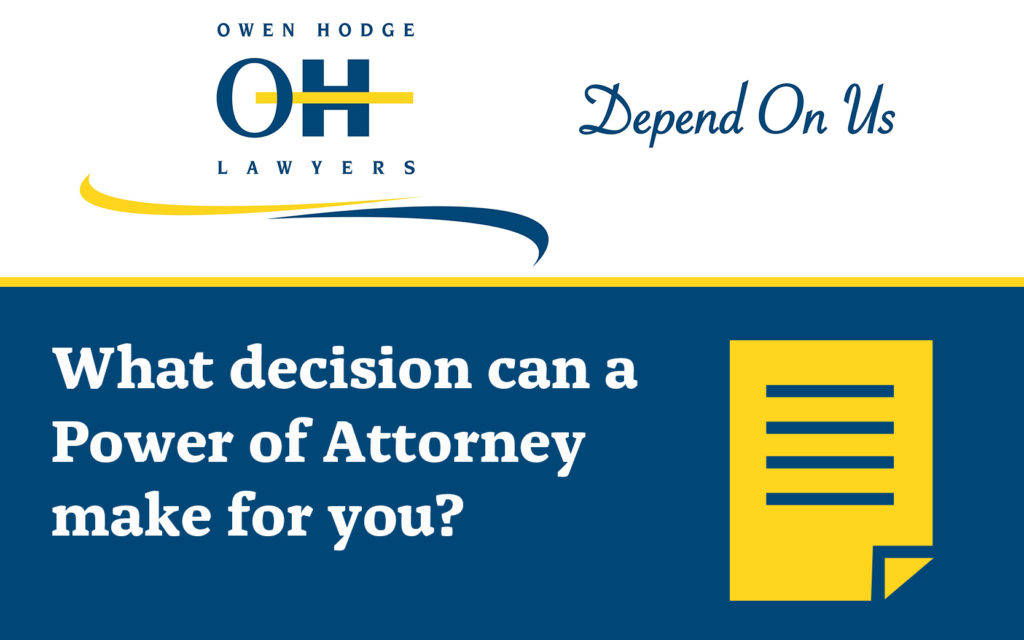
written by Dr Mal Stoddart
Cognition is the mental action or process of acquiring knowledge and understanding the thought process. If you have cognition then your Attorney can do anything for you that you direct them to do. If you lose cognition, that is to say, that you suffer from an intellectual loss of capacity, then you will need a Power of Attorney.
The real advantage of a Power of Attorney is that your Attorney can act for you in the event that you lose cognition, for instance, if you are in a coma or suffer from Alzheimer’s disorder. These are among many other disorders of the mind that can mean that you lack the legal power to make your own decisions or enter a contract.
However, it is important to note that there are a number of overriding factors. The primary one is that your Attorney must always act in your best interests. Secondly, they must take no financial advantage from you unless that right or power is given on the face of the Enduring Power of Attorney itself. It is not uncommon for a husband-and-wife to give each other quite substantial powers to transfer assets from one to the other. This may be especially useful in the event of later in life estate planning or to gain an increase in medical health benefits or for equalisation of tax.
The Powers of Attorney Act 2003 also lays down other stringent rules including the requirement that the Attorney never mixes the Attorney’s money with that of the person giving the power. The law is quite stringent. The power itself can be revoked and civil action can be taken against an Attorney who regrettably takes advantage of his or her trust.
In short, an attorney can do any lawful thing that a person herself can do.
What happens if you don’t have a power of attorney?
If you don’t have a Power Of Attorney, someone close to you will have to apply to the New South Wales Civil and Administrative Tribunal (NCAT) for a power to manage or administer your estate. However, if there is any familial conflict the chances are that that Tribunal will appoint the New South Wales Trustee & Guardian Tribunal to act. Occasionally the NSW Trustee & Guardian Tribunal might appoint a private manager called a financial manager, but this is only in the rare circumstances.
The New South Wales Trustee and Guardian Tribunal charges fairly heavy fees, and one of the problems for the client is that they effectively lose control of the management of their own assets and property. Also, detailed accounting procedures are required for a private financial manager.
In any event, most people would want to choose their family members or friends who would have control of their assets. Resorting to NCAT means that you lose this opportunity and you must accept either the New South Wales Trustee and Guardian or the person or persons that are appointed by it. Because the New South Wales Trustee and Guardian is a government trustee it is particularly careful as to how it administers your estate. This itself is not a bad thing but the end result is that it often causes delays and a lack of a friendly face for your family to dialogue with. The fees are an added imposition.
Personally, I have been involved in some hard-fought applications to the Tribunal. Family relationships have been torn apart. Decisions have been made that no one is really happy with. And the elderly person although lacking cognition probably knows enough to be not too happy with the end result.
It is much wiser to see your lawyer at an early date and put this relatively cheap document in place. Do ensure that you have a generational Enduring Power of Attorney in place. A person will usually appoint their spouse if possible but if they do so they must also ensure they appoint at least two people a generation below themselves in age as a safeguard, noting the actual powers given and whether they are to act jointly or jointly and severally.
If you are looking to put a Power of Attorney in place, please contact the law offices of Owen Hodge Lawyers, as we are always happy in assisting clients in understanding the full ramifications of any and all of their legal needs. Feel free to contact us at your earliest convenience to schedule a consultation at
1800 780 780.

